How to Get Rid of Possums in Your Yard, According to Pest Experts

Some appreciate possums for their unique appearance and status as the only marsupial native to North America. And unlike other nocturnal mammals, such as raccoons, they play a role in natural pest control by eating cockroaches, snails, slugs and small rodents, according to the Humane Society. But if you’re dealing with an infestation on your property that might be getting too close for comfort, you may prefer that possums do their thing somewhere other than your yard. Don’t worry, though. There are a few methods that can send them packing. Read on to learn how to get rid of possums in your yard, according to pest experts.
RELATED: 9 Best Mosquito-Repellent Plants, Pest Experts Say.
1
Get your yard under control.

Regular yard work isn’t just for aesthetic purposes. Consistent maintenance can help keep plenty of pests, including possums, at bay.
“Keep vegetation cut back and maintain regular upkeep of trash cans, outdoor storage, and the property,” suggests Jamie Nichols, senior service center manager at Arrow Exterminators. “Basically, the fewer hiding spots, the better. Possums seek out harborage areas for shelter, and blocking access to these areas—a method we call ‘exclusion’— is very effective.”
2
Protect your home.
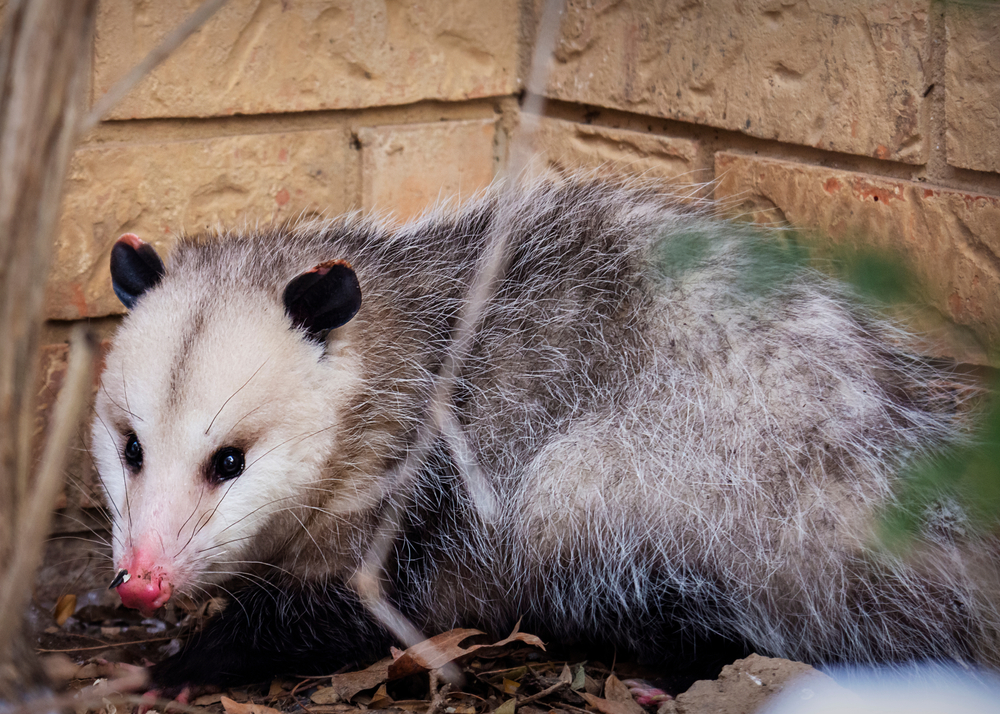
Many pests and cohabitating animals will take any opportunity to sneak into your home to get comfortable. That’s why experts say it’s important to make sure any potential entry points are secured.
“Possums in your yard will look for shelter—which can include taking cover in or close to your home or in your sheds,” says Brandon Thorsell, district manager for the Toronto branch of Critter Control Canada. “Cover vents with metal vent covers and attach metal flashing or quarter-inch hardware cloth to protect other openings that must be maintained for airflow or exhaust.”
RELATED: 8 Ways to Keep Snakes Out of Your Pool.
3
Control their food sources.
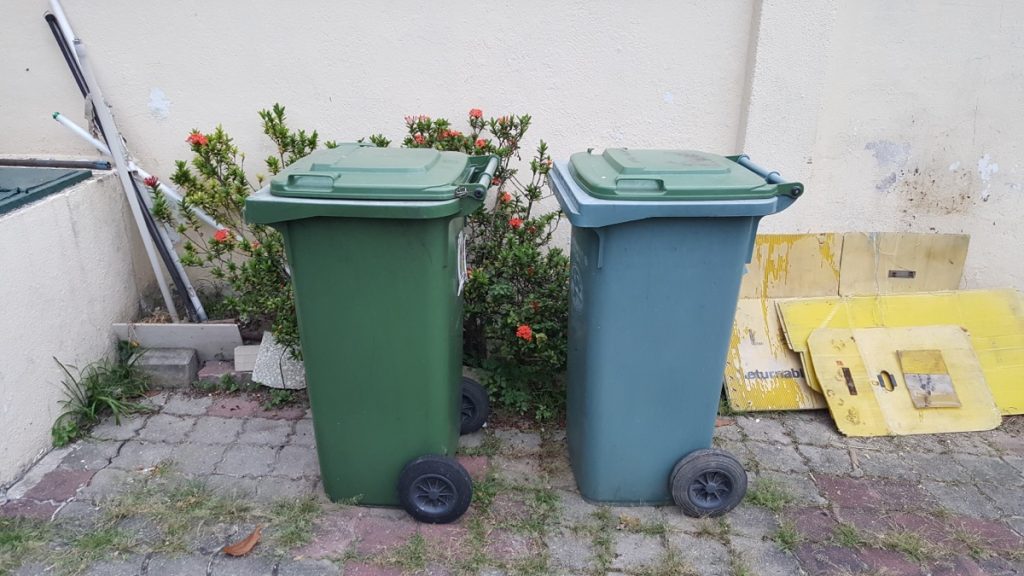
A lot of wild animals tend to stick around a property once they’ve discovered it’s easy to score a meal there. According to Nichols, this makes possums particularly tricky. The notoriously un-picky eaters have a diet that includes insects, rats, mice, birds, eggs, berries, fruits, pet food, and garbage.
“Have you seen any of these food sources around your yard or home? Eliminating the food sources of most unwanted animals in or around your home is the best method and will lessen the odds of contact,” he tells Best Life.
4
Consider trying a repellant.
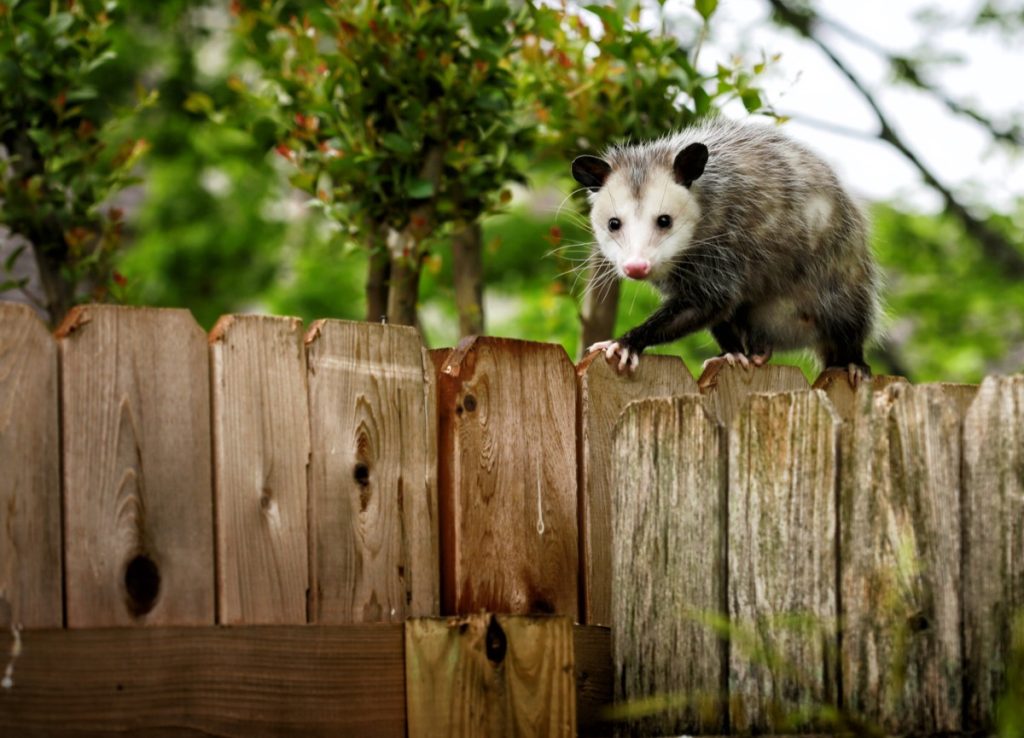
Repellants may seem like an easy way to rid yourself of any unwanted pests on your property. But as with any product, you’ll want to do a little research before applying and weigh the potential consequences.
“These are used sometimes, but pay attention to active ingredients,” Nichols warns. “Some can be very harsh to you and your pets, and some can also be very unpleasantly aromatic.”
RELATED: 6 Bugs You Should Never Kill, Pest Experts Warn.
5
Set some live traps.
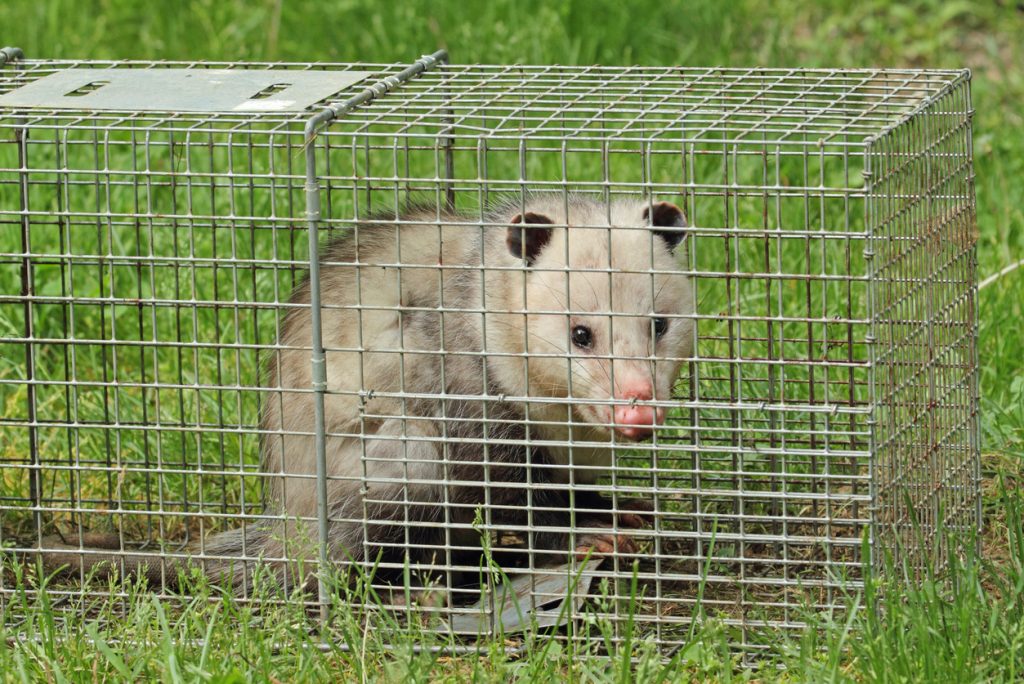
Unlike rodents or insects, possums usually arrive in small enough numbers that they can be safely captured and relocated. That’s why live traps are a preferred method for professional wildlife removal companies.
“This is a humane method to catch the animal and relocate it to another location,” says Nichols.
If you’re planning on setting one up for yourself, he suggests using wet cat food and tuna as bait. However, he warns that this method is usually best handled by a professional—especially for the sake of the critters involved.
“We generally set live cage traps, and we are required by law to check these traps at least every 24 hours,” he says. “Sometimes, there are multiple animals, in which case we deploy multiple traps at the location. Ideally, we want to keep family members together while trapping, as this gives them a better chance of being successful upon relocation.”
6
Install motion sensor lights.
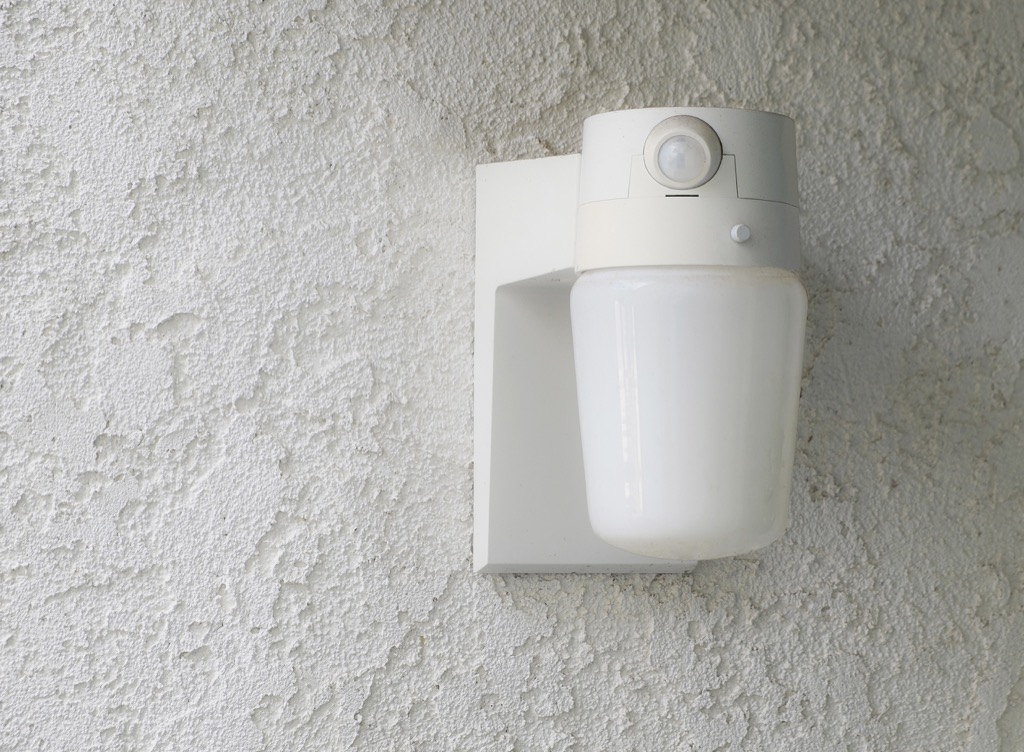
As nocturnal creatures, possums tend to avoid bright spaces and prefer rummaging around for food in the dark. That’s why motion sensor lights can be an effective deterrent, according to Stuart Flynn, owner of Bug-N-a-Rug pest services. They’re also easy to install.
He explains that by installing motion-activated lights in your yard, it’s possible to startle possums and make them feel uncomfortable. This may eventually encourage them to find a new area to forage for food.
7
Bring in the professionals.

As with any pest problem, with possums, there are only so many steps you can take on your own before it becomes necessary to bring in the experts.
“If you are not able to identify or eliminate issues like food or hiding spaces, then hiring a professional is the next step,” says Nichols. “They can identify and offer solutions for unwanted ‘guests.'”
He also says that the cost of a single visit by a wildlife control company may cost less ultimately than investing in other methods that may not work over time.